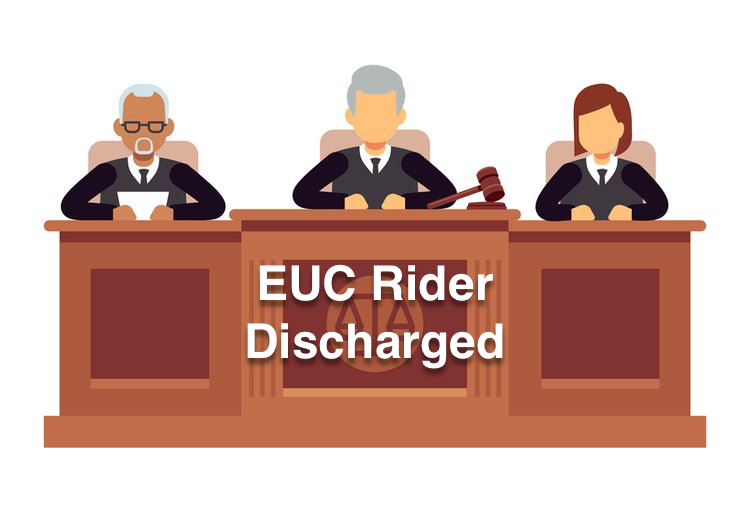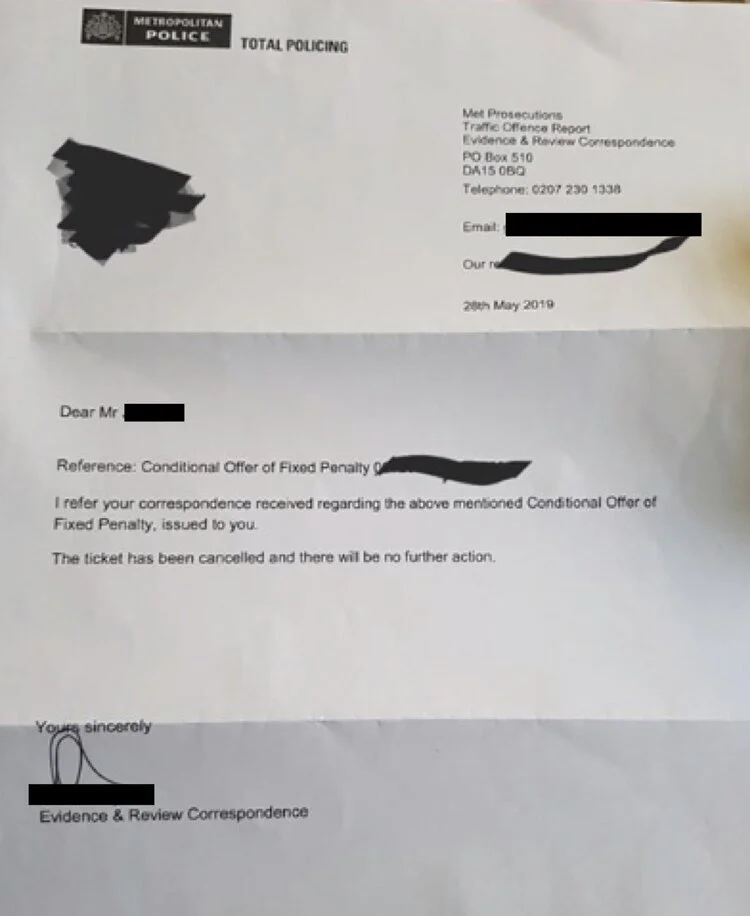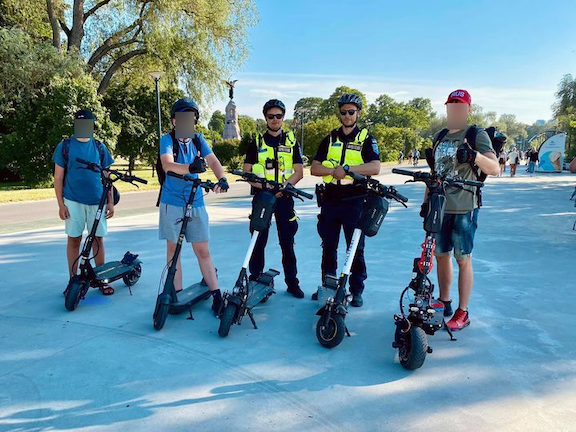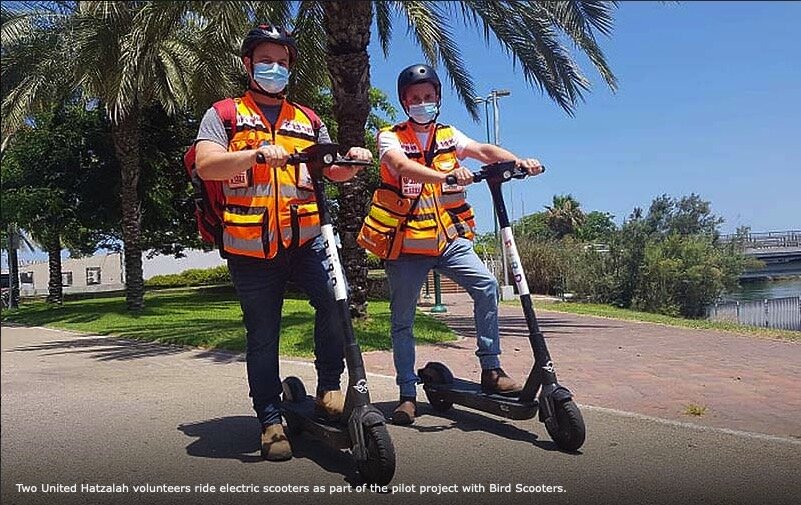Vincent is a keen London based electric unicycle (EUC) rider who has been using his Kingsong 16X electric unicycle for commuting to work between East and West London. Vincent and his partner Louisa, have kindly given me permission to write up their experience.
Incident
After a year of riding, on 2nd February 2021 Vincent was stopped en-route to work by Londons’ Metropolitan Police. The Police issued Vincent with a penalty notice for riding with no valid driving licence for the vehicle, no insurance and contravening a cycle lane (although the latter was not brought to court) and seized his electric unicycle (EUC).
Rather than pay a fine and receive penalty points on his driving licence, Vincent sought legal advice from a solicitor and chose to plead “Not guilty”. Instead challenging the case nine months later at Lavender Hill Magistrates Court.
Evidence
In the nine months leading up to the case, Vincent and his partner Louisa were hard at work gathering evidence and seeking further legal advice. The evidence included the following:
Police
An email from Hampshire Constabulary (sent to Rob Hitch), confirming “electric unicycles would be classified under the same regulations as e-bikes:
Vincent contacted his local Police station in the hope of a similar response, but no response was received.
DVLA
Seeking clarification from the DVLA regarding licenses, an email response was finally received stating that the DVLA could not confirm whether there is/isn’t a license for EUCs available yet.
Original Seizure Letter
The original seizure letter stated that under no circumstances could the vehicle be collected without evidence of the valid insurance and licence. Yet Vincent was able to show that he successfully collected “the vehicle” with very few questions asked and certainly not presenting insurance or licence!
Reseller marketing material
The reseller evidence became key to Vincents’ defence. The reseller marketing material showed in court included:
Confirmation the reseller was a UK registered business, with a UK website.
Statements on the reseller website highlighting the many benefits of electric unicycles (EUCs) including “commuting”.
Reseller videos showing electric unicycles (EUCs) being ridden on public UK roads.
Court Appearance
Nine months later at Lavender Hill Magistrates Court, Vincent arrived with his legal representatives. The above evidence caused much confusion regarding the legal status of EUCs and their vehicle classification, with the case rapidly focussing on the seller.
There was enough evidence on the reseller website to convince the magistrate that the vehicle was being sold as a commuter vehicle for use on UK roads.
The magistrate asked if the videos of EUCs being ridden on roads were UK roads. to which the answer was clear. This contributed to the argument that Vincent was offending unintentionally.
In addition, Vincent explained to the court that he had been riding in prominent London hotspots, passed the Houses of Parliament and Scotland Yard police stations for many months. He was only stopped on one occasion at a tube station for not wearing a face mask. Whilst replacing his helmet with a face mask the policeman excitedly said he knew what the vehicle was and was curious how it worked and thought it was great.
Vincents defence also put forward a strong character reference saying that he had no points on his licence, wore the appropriate PPE, rode in cycle lanes and complied with the police. Also, the fact that the government were encouraging alternative modes of transport because of the pandemic, and he was doing what he could do to avoid infection because he was a key worker and his partner Louisa was clinically vulnerable.
The lack of insurance was the most serious crime being put forward.
The prosecution was drawing on previous convictions to make his case. The main argument which the defence solicitor presented a very strong case was the ‘special reason’ being allowed and how it was interpreted to use in this case.
The Police had video footage of Vincents riding, luckily the prosecution chose not to show it, as it would have been quite incriminating as when asked if Vincent knew he needed insurance, he said ‘there’s no insurance available’ and implied he knew they weren’t yet legal.
Without the video Vincent was able to steer away from his admission and blur the lines of various types of insurance i.e third party insurance/insurance for theft and convince the court that because he thought it was an e-bike there wasn’t a requirement to insure it.
He made the comparison of bicycle to e-bicycle and unicycle to e-unicycle, saying that the former don’t need insurance so why would he assume that an EUC did.
The resellers website refers to EUC's as “commuter vehicles” but Vincent rightly pointed out it's unlikely you'd ever commute on private land!
Vincent was able to show the court that the evidence showed that he was being “misled” and pleaded “Guilty with Special Reason”.
Judgement
The court found that it was totally acceptable that Vincent was unintentionally offending & issued an “absolute discharge’, meaning that ANY punishment was unacceptable and the case was closed with NO FINE and NO POINTS!
Vincent was then advised not to ride his EUC anywhere except on private land, with the land owners permission.
In conclusion, the defence had to convince that the magistrate that his crimes, focusing on insurance, qualified as a ‘special reason’, which was successful!
Summary
Vincent was strategically advised to plead “Not Guilty” first. If he had pleaded guilty, Vincent would automatically been issued a fine and points. Pleading not guilty gave more time before it the trial, to make a case.
Vincent & Louisa also hoped that in the time between his plea and the court date, the CPS might drop the case thinking it might not be worth the effort.
Pleading “Guilty” with special reasons was done a week before the court date with the assumption that Vincent wouldn’t get off with “Not Guilty”, and that they should aim for lesser penalties, with the best case scenario being let off with a special reason.
It was an expensive and time consuming exercise with a positive outcome. Vincent used the following solicitors for his case: http://www.motorlawyers.co.uk/ (Alan) and court representation via Alan’s recommendation.
Always seek professional legal advice before bringing a case to court.
Have you had a similar positive outcome? Let us know in the comments below.































